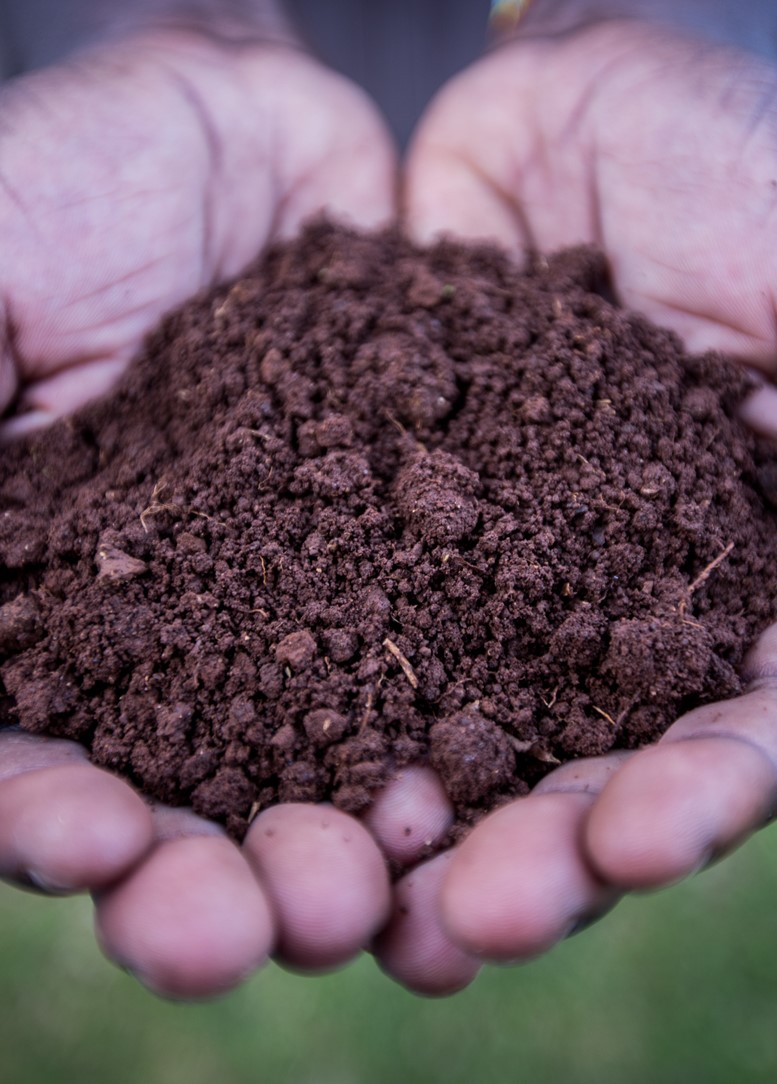Agricultural innovation in Africa starts with soil analysis
To all those organisation who with all good intentions think they can solve the problem of Africa: agricultural experts, advisers, policy makers and scientists; their expensive advice is almost always build on scientific insights, but not on what is going on in the villages and the fields in Africa. And that is where the problem lies. The solutions in Africa that have been applied in practice for many years are being overlooked. In my opinion two things are important when it comes to improving agriculture in Africa: 1) not forgetting about local context and 2) being aware that there is also a sequence in interventions. Let me explain this.
From scientific knowledge to practical application of my knowledge
I have worked at the Wageningen University and Research Center for years, the stronghold of technological agriculture. Almost two years ago I got the chance to translate my scientific knowledge into a practical application in Africa. A chance that I have seized with both hands and I have learned a lot of it.
Organisations with new technologies
Where others oppose to the 'scientification' of agricultural development (which I do not; why should smallholder farmers not benefit from science?), I mainly oppose to what I call the 'reverse approach'. Time and time again I notice how organisations with new technologies want to save the lives of poor farmers in Africa, or at least want to improve it. Data solutions in particular are hot now, combining various sources of information to provide a specific advice. This is understandable; the possibilities are unprecedented and credit providers and insurance companies want to follow and evaluate their customers with all kinds of tracking systems. For the farmer, so they are told, it is a win-win situation, because the well-meant advice and high-tech solutions are customized to the (meta)data of the farmer. How great is that?
Applying advice without the right means or knowledge is impossible
But, how useful is it to get advice on pest control if a farmer does not have the means nor the knowledge to apply the advice? In addition to missing the local context, it also lacks the right sequence. If the start of the production process is not working, the rest will, literally and figuratively, not hit fertile ground.
Inputs are not effective on degraded soil
And soil is at the basis of the production process. More than 65% of agricultural land in Africa has been degraded to a greater or lesser extent. This means that these soils no longer function properly; seeds do not germinate or fertilizers get flushed away, or both. It is often just those inputs that are advised by all kinds of smart apps that are not effective because the soil can't maintain them.
Farmers cannot benefit from innovations, whether they are locally developed techniques or based on scientifically acquired knowledge, when the underlying soil cannot adsorb them. It is as if you put a chimney on a house without a creating a proper foundation.
The challenge for African agriculture
The challenge for agriculture in Africa is that everything needs to change at the same time. There is no point in using better seeds if the soil does not function properly. The other way around, too, a poor seed on fertile soil does not make sense either. And the same thing goes for other issues like pest control, harvesting, proper storage, effective processing et cetera; in other words everything that is needed from 'soil to mouth'.
Information about your soil condition is hard to get in Africa
Soil has not been top of mind in African agriculture so far. At least until recently, farmers that wanted to know the condition of their soil, had to send a sample to a laboratory in a big city. After the sample was taken they did not hear anything for weeks or months and then they were sent an incomprehensible report. Or they received nothing at all, because quite often the report never reached the farmer.
Using smart technology together with the farmer
SoilCares Foundation tries to solve these problems by determining the soil information on the spot with a ‘Soil Scanner’. This is also a high tech innovation, but with a local context, and offered by local service providers together with the farmer in the field. The Scanner determines the status of the soil on the spot, the farmer indicates which crop he or she wants to grow and the app (yes, sorry an app) indicates which local fertilizers can be used for this purpose. By analysing soil information with smart technology and onsite and together with the farmer, the right foundation is created for improvements in African agriculture.
Empowering farmers with technology
It is great to see what this 'empowerment' does to farmers. When a farmer said to me: "you make soil visible", I knew I was on the right track: information is motivation ... and then those high tech innovations eventually hit fertile ground. Literally.
Did you like this blog? Read more blogs by Dr Christy van Beek here.

